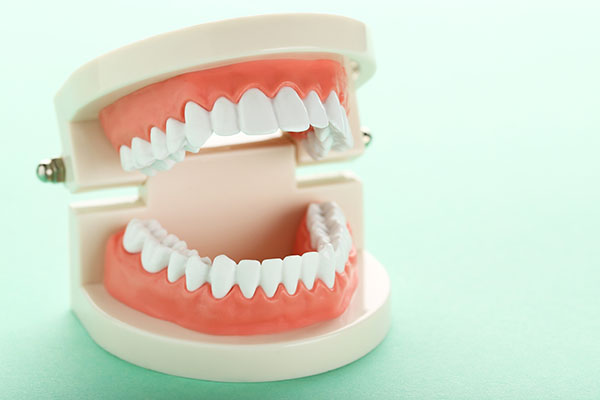 Understanding what causes bleeding gums is vital for preventing this common condition and promoting proper oral hygiene. Dentists can make recommendations to help patients maintain healthy gums and avoid widespread health and oral complications.
Understanding what causes bleeding gums is vital for preventing this common condition and promoting proper oral hygiene. Dentists can make recommendations to help patients maintain healthy gums and avoid widespread health and oral complications.
Why do gums bleed?
People frequently dismiss gum bleeding as a normal consequence of overly aggressive brushing or flossing. Using a toothbrush with stiff bristles might cause gums to bleed. However, these issues may be due to other problems that require immediate attention:
- Medication side effects
- Pregnancy hormone fluctuations
- Cancer complications
- Diet insufficiencies
- Auto-immune disease complications
As well, an accumulation of plaque (a sticky film of bacteria) on the teeth can cause gingivitis, which is commonly associated with gums that bleed.
How can bleeding gums be prevented?
Systemic issues that cause gum bleeding may warrant various treatments to effectively improve oral health. Dentists can recommend practical oral hygiene tips to prevent gum problems for otherwise healthy patients.
Daily brushing
Brushing twice per day using a soft-bristled toothbrush is essential for maintaining healthy teeth and gums. Using light, small circular motions near the gumline stimulates healthy blood flow and removes plaque before it hardens and progresses.
Daily flossing
Dentists recommend flossing once per day to loosen plaque and food particles beneath the gums. Wrapping the floss around a tooth's base, near the gum line, and sliding it up and down along the tooth's sides loosens plaque. Care is necessary to avoid pressing the floss hard against the gums. Doing so can cause minor cuts that can lead to bleeding.
Quitting smoking
Smokers' mouths can breed harmful bacteria that promote oral disease and discomfort, including bleeding gums. Nicotine decreases blood oxygen levels, preventing the adequate healing of gums compromised by bacteria and plaque. Dentists advise patients against starting to smoke and encourage existing smokers to curtail the habit.
Eating a healthy diet
A balanced diet can significantly benefit overall health and promote healing from gingivitis or periodontal disease. A diet heavy in fruits, vegetables, nuts, or fish provides beneficial antioxidants that reduce free radicals causing inflammation. Foods containing vitamins A, C, and E can also help patients avoid gum disease complications.
Reducing sugar
Patients who refrain from consuming excessive amounts of sugar can enjoy numerous health benefits and avoid significant gum problems. Sugar or starchy foods that form sugars feed oral bacteria, leading to plaque and gingivitis and promoting bleeding gums. Eliminating sugar and reducing foods that disturb the oral microbiome is an excellent way to maintain healthy gums.
Scheduling routine dental cleanings
Patients who visit a dentist every six months for professional dental cleanings can avoid the consequences of harmful plaque and tartar, including gums that bleed. Professional cleanings can efficiently remove these stubborn and damaging substances and help patients' home-care between visits be more effective. Individuals who routinely undergo professional dental cleanings tend to have healthier gums that rarely bleed.
Conclusion
Bleeding gums can be alarming, but ignoring them can lead to long-range complications. Dentists can recommend helpful oral hygiene tips to assist patients with preventing or reversing this common progressive gum condition.
Request an appointment or call New York Dental Office at 212-548-3261 for an appointment in our New York office.
Recent Posts
Most people have experienced seeing red on the bristles of their toothbrush, or a pink tint in the sink when they expectorate after brushing. It is normal to feel a bit of concern when noticing blood in the mouth because bleeding gums are a symptom commonly associated with gum disease. However, while chronic bleeding gums…
Bleeding gums are a symptom of poor gum health. Since you may not experience pain or discomfort, you may not think it is serious. In many, bleeding gums indicate gum disease. If left untreated, gum disease can lead to serious health complications.Gum disease develops when plaque and tartar buildup along the gumline causes inflammation. Over…
Flossing can seem like a chore, but the link between flossing and bleeding gums is clear. Sometimes, when you floss, you might occasionally find it causes your gums to bleed. That does not mean that flossing is bad for you — but you may not be doing it properly. Frequent flossing is the solution to…



